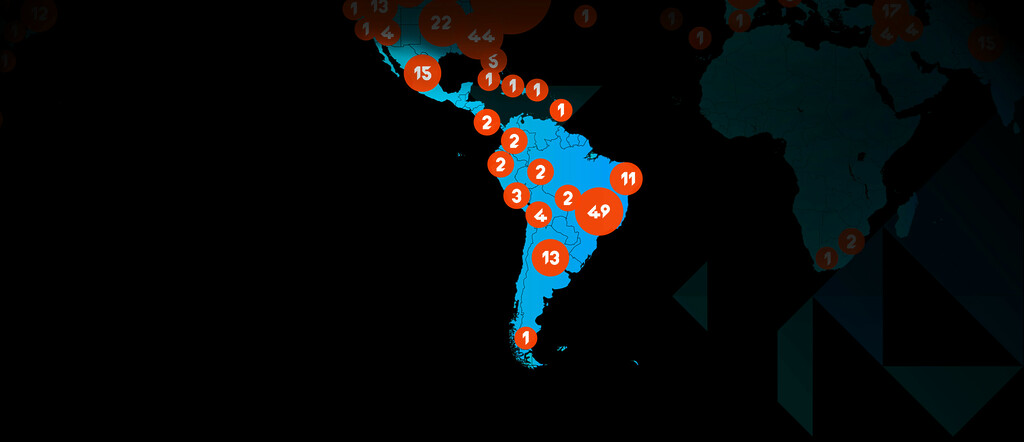
Open Caching Delivers Massive Wave of ‘Baldur’s Gate 3’ Traffic
The original ‘Baldur’s Gate’ was launched in 1998 by previously little-known games developer Bioware. Using a modified version of the ‘Advanced Dungeons & Dragons’ second edition rules, the computer role-playing game generated critical acclaim, healthy sales and planted the seed for future sequels. The original game shipped on a massive 5 CD-ROMs boxset, and vocal gamers quickly complained about the 570 MB of disk capacity it consumed.
Roll forward 25 years, and the third installment, Baldur’s Gate 3 – now developed by Larian Studios – set the record for the most successful opening weekends of any Dungeons & Dragons-style role-playing game. 2.5 million people bought the game digitally ahead of launch, and as of early August, it had around 800,000 concurrent players, according to Steam – the world’s largest games distribution platform.
The latest Baldur’s Gate is simply stunning; the world, cinematics, and storylines have evolved immensely since the game’s second version came out in 2000, and they are staggering in scope. However, so is the size. Baldur’s Gate 3 is a massive 122GB – 200 times the original size. This size means that the developers have chosen not to ship the game on physical media – a first for this franchise – and on the launch weekend, the game’s popularity caused severe download lag for some users.
Typically, pre-ordered games are downloaded in the background over several weeks before launch to prevent this type of tidal wave of concurrent downloads from overwhelming servers. However, many of Baldur’s Gate 3 players were using an early access version, and it was not possible to patch this version to the launch equivalent – so even beta users had to re-install. In short, a perfect storm for mammoth downloading and enormous network traffic was set in motion.
Recent media commentary suggests that some Baldur’s Gate 3 buyers were experiencing expected download times of days and, in extreme cases, even weeks, as downloads ran to a trickle across some ISPs. Steam uses multiple CDNs to speed up game downloads, but the reports of slow downloads persisted days after the launch, as reported by multiple gaming magazines. But some ISPs seemed to fare better than others, which begs the question – why?
A CDN typically moves the content to the edge of the ISP network at a peering point like a regional Internet Exchange. However, content must still flow over the core network to get to individual subscribers. If 50,000 gamers all start downloading a 122GB game on a single ISP – that generates a peak of traffic flowing over this core network that might exceed the capacity of the ISP’s peering or, more concerning, the capacity of the ISP’s core. The traditional CDN may have taken the content closer to the destination, but the delay is now within the ISP or “last mile” network.
Several ISPs didn’t have this problem, and most notable is a Tier 1 US service provider which uses an Open Caching solution from Qwilt. In this case, the Baldur’s Gate 3 files were delivered from 100s of distributed Open Caching servers deeply embedded inside that ISP’s network – from regional nodes with fewer hops to the destination. At its height on the 3rd of August, its open caches peaked at 5TBps – or the equivalent of delivering five copies of the game every second. Instead of the download times of several hours, days, and weeks reported by some consumers, this US ISP ensured a download rate of approximately 2 hours.
Baldur’s Gate 3 is unusual for the size and scope of its world and experience. Yet, this trend towards larger games is growing. In a 2020 ars Technica article, the average Sony PlayStation 4 game download in 2013 was reported to be around 15GB. By 2020, this had ballooned to 43GB. Grand Theft Auto 5 – one of the most popular PC games of all time with various expansion packs – requires around 100GB of disk capacity. Its sequel, rumored to launch in 2025, will likely be one of the largest games ever created!
Open Caching Delivery of ‘Baldur’s Gate 3’ at a Tier 1 US ISP Peaked at Nearly 5 Tbps on August 3, 2023

Source: Qwilt Open Caching stats – Tier 1 US ISP
With gaming surpassing TV in terms of revenue and now easily a top three hobby globally, ensuring that digital distribution is up to the task is a priority for a market projected to reach US$384.90bn in 2023.
Without giving away too many spoilers, Baldur’s Gate 3 has your party of adventurers on a quest to combat an other-worldly invasion. Open Caching is succeeding in making game digital downloads a far more enjoyable and rewarding experience.
Ready to take the next step?
We have a team of content delivery experts ready to answer your questions.
Related resources

Vision Paper
Deliver the Ultimate Gaming Experience

Application Paper
Software Downloads and Patches are Moving to the Open Edge

Report
Live Streaming Survey Results

Video




